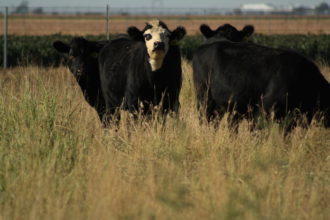Initial Southern SARE-funded research from Texas Tech University from 1997-2004 found that grazing stocker steers on perennial old world bluestem pastures and small grains in rotation with cotton required 25 percent less irrigation water and 40 percent less nitrogen fertilizer, and resulted in higher net cash returns/acre than growing cotton in monoculture.
In the Southern SARE-funded project (LS02-131), “Forage and Livestock Systems for Sustainable High Plains Agriculture,” research continued into Phase II with the addition of dryland grazing systems and deficit-irrigated forage-livestock grazing systems. This bulletin highlights those research results.
Want more information? See the related SARE grant:
